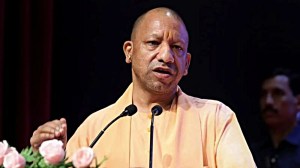‘Can’t divide students on marks’
I clearly remember that most of my classmates wanted to reach the higher divisions with the brighter lot,’’ says film and televisi...

I clearly remember that most of my classmates wanted to reach the higher divisions with the brighter lot,’’ says film and television actor Pallavi Joshi. But the actor, an ex-student of King George High School, Dadar, was always stuck in the ‘‘academically mediocre lot’’.
Now, her school is one of three issued notices by the Bombay High Court on Wednesday. They’ve been ordered to explain how and why they segregate their students into different divisions according to merit.
The other two are Parle Tilak Vidyalaya and Balmohan Vidyamandir, considered ‘‘trendsetters’’ in segregating students on the basis of their marks.
The court’s intervention was the outcome of an appeal filed by parents and counsellors concerned that the segregation of good and bad students is harming children.
‘‘We have always divided students according to merit,’’ defended King George High School principal Sucheta Bhawalkar. ‘‘It helps us concentrate on the weaker ones.’’
But many parents, fearing that their children are ‘‘losing out’’, vehemently oppose the system.
‘‘My daughter was even instructed by teachers not to share notes or exam questions with other classes. It’s ridiculous,’’ rues Sandhya Balaji, mother of Suvarna Balaji, a former student of the S.C.D. Barfiwala High School in Andheri.
The principal of the Poorna Prajna Education Centre (PPEC) in Dahisar, Aruna Galgali, agrees. ‘‘It’s the wrong practice. Why should the success of brighter students be at the cost of the weaker ones,’’ she asks.
‘‘Such segregation is unhealthy. It affects the child’s self-esteem and the trauma is carried forward to later life. It’s akin to promoting exclusivity,’’ says Dr Bharat Shah, president, Bombay Psychiatric Association.
But the three targeted schools are known for producing the most merit-holders and are not alone in segregating students. ‘‘It’s a sly system followed in at least 100 schools to produce rank-holders,’’ says a school counsellor.
State Education Department officials, who haven’t received the court notice yet, say they are open to an ‘‘ability tracking system’’ in schools and want them to exercise discretion.
‘‘We don’t want to rule on every issue. It’s proven that if students who score 60 per cent study with those of the same percentage, they benefit greatly,’’ explains Jayraj Phatak, State Education Secretary.
Photos


- 01
- 02
- 03
- 04
- 05





























